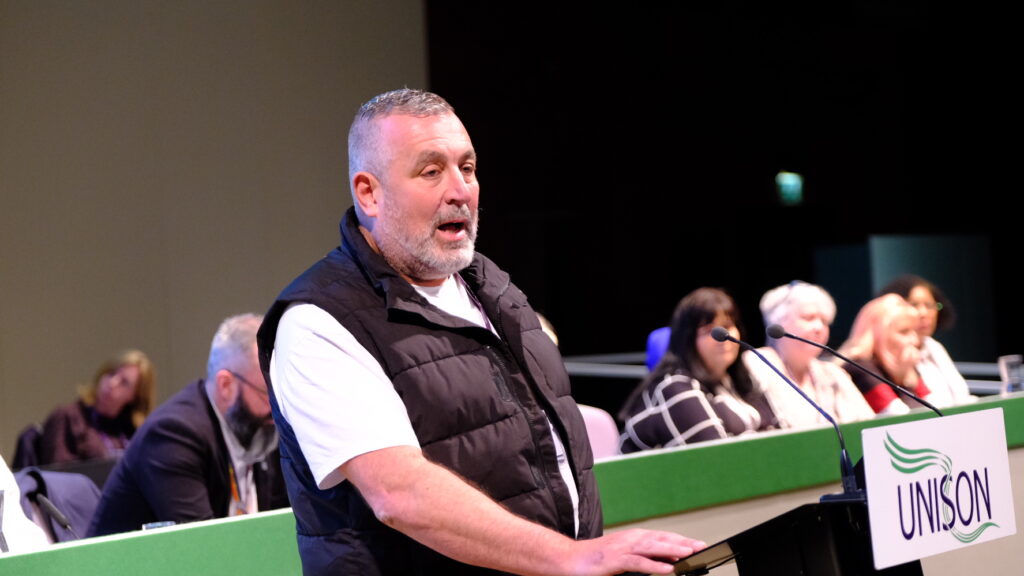On the final day of UNISON’s health conference, delegates heard a series of debates on defending the NHS against privatisation.
Tam Hiddleston for the service group executive warned that, while “we invariably think of insourcing as a positive,” some insourcing “is about private operators being brought into the NHS.”
UNISON needs to be very careful to monitor “any wider implications for Agenda for Change pay and conditions,” he continued.
Chris from London noted: “What’s the point of insourcing people and you just change their uniforms?”
Moving a motion on mega trusts for the Eastern region, Glen Carrington (pictured above) highlighted the rising problems facing staff in such trusts in his region.
NHS England is pursuing trust mergers in an attempt to save money, “but after 14 long years of Tory cuts, has anyone ever looked to see what the impact is on staff?
“The chances of starting a shift in Cromer and ending up in London happens all too often,” said Mr Carrington. “Don’t let anyone tell you big is always better.”
In another motion, conference heard of staff left devastated at learning that their jobs were being outsourced.
Yet even as outsourced services have been shown to cause major problems, it is an approach that continues, and causes even more problems – not least in the increase of a “two or three or four-tier workforces” as contracts are passed from one company to another.
That situation is a “national scandal that the Tory government continues to be complicit in,” said one speaker.
Steady recruitment of healthcare students
Also on Wednesday morning, conference heard of the “steady recruitment of healthcare students” and agreed that “continuing to recruit healthcare students to UNISON is an essential part of a strategy for a strong UNISON presence in the NHS”, and welcomed the success of the union’s Future Healthcare Leaders programme.
The motion, from the national young members’ forum, noted that a recent survey of heathcare students had revealed increasing struggles with the cost of living crisis and the levels of financial support they received, with 35% agreeing that they might not be able to complete their studies because of the situation.
Among a raft of calls, conference urged the executive to:
- engage with regional health committees, the strategic organising unit, the national young members’ forum to build and develop strategies for recruitment and organisation of healthcare students
- campaign for better financial arrangements for healthcare students
- work with the national women’s committee to explore the additional financial challenges facing healthcare students with childcare responsibilities.
The article Why insourcing isn’t always a win first appeared on the UNISON National site.

